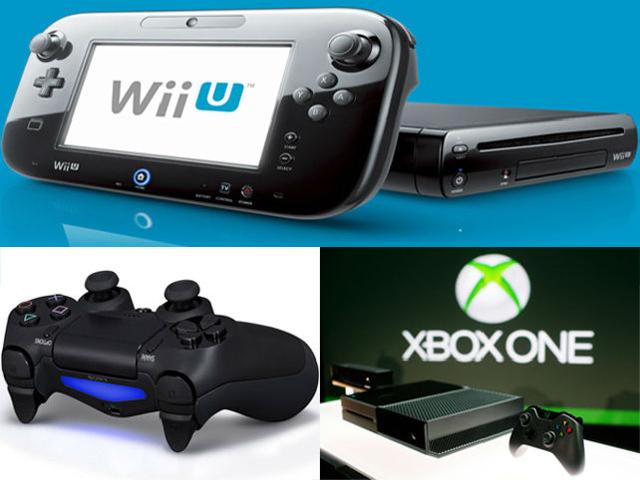Who’s winning the buzz war over new console hardware is going to be one of the big questions coming out of the show. Of course, marketers for each company will be busy measuring tweets and likes, and compiling figures for the CEO to admire. We don’t have access to that internal data, but there are other ways to figure out who’s coming out ahead in the buzz battle. One simple way to watch the buzz is to use Google Trends; put in the search terms (like Xbox One or PS4) and get some quick comparisons.
There’s more than just Google Trends to watch, of course. Check out the support from major publishers for the next-gen consoles. Are the AAA titles appearing on both PS4 and Xbox One, or only one of those Given the architectural similarities between the two platforms, major publishers would generally be developing a title for both platforms — unless given an incentive to do otherwise. Or the executives at a company may have decided that, based on what they know, that one console will do substantially better than the other. That seems unlikely, though; there are too many unknowns at this point to be picking a winner at this stage. The general approach is to maximize the return on development by porting a game to all possible platforms — unless there’s a very good reason not to.
It will be tough to pick leaders by looking at gaming-focused media, because they are going to have huge amounts of coverage of all the major players. A better bet to get a read on what the average consumer might think is to look at mass media’s coverage. They will tend to cover all the major players fairly equally, but they may zero in on one as possessing some feature or exclusive game that makes a particular impression.

The really important item to look at is the number of exclusive games for the platform. Here are three time frames to look at: Launch titles, titles appearing before the end of the year, and titles announced for 2014. While media and the publishers may make a fuss over launch titles, what matters more to the sales over the holiday is the number of titles available before the end of the year. Even customers who buy the new console at launch won’t likely buy more than one or two titles at the same time. New software appearing over the following month might as well be a launch title for most buyers.
The longer term sales picture for the next-gen consoles depends mostly on the flow of new games. While titles of any kind are good, exclusive titles help make the buying decision in favor of one platform over another. This is particularly true in the case of the PS4 and the Xbox One, which are generally similar in architecture and features and will have many of the same AAA titles from major publishers. It’s important to note that a revival of Wii U sales will depend greatly on Nintendo’s ability to deliver a steady stream of solid new games, whether their own or from other publishers.
Let’s not forget, too, that asking around can provide some useful insights. If everyone you ask mentions the same console as the winner, somehow or other that console has managed to get ahead of the competition. Don’t forget to ask why someone thinks more of one console or another; the answers will give you clues as to the most effective selling points that have swayed opinions. You may get some ideas on what makes for good buzz for your own products, as well.
While some media may feel the urge to crown a ‘winner’ of E3 between the different consoles, or between the new games being introduced, that’s not going to matter much to the ultimate bottom line. Sure, it’s a nice thing to mention on package copy or in an ad, but ‘Best of E3’ isn’t something you can deposit in the bank. The battle for market share is only beginning at E3, and will continue for years. It’s quite possible that each manufacturer can ‘win’ on their own terms, by meeting sales and profitability projections, even though only one can be the best-seller in a given market over a given time period. Let’s not lose site of the ultimate goal of all of the marketing and PR activity: Generating higher profits. In the long run, if marketing can’t do that it’s a failure, no matter what customers (or marketing execs!) may think.

